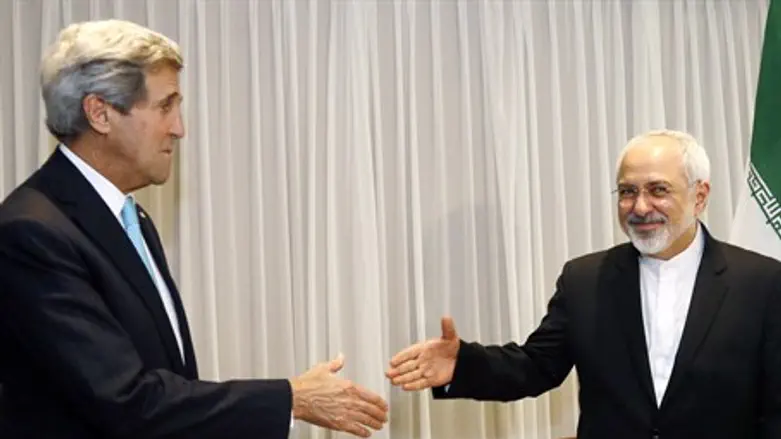
Iran has for years declared that it will never give up on its “right to enrich uranium” as part of a deal with the West, and reports Tuesday indicated it may indeed maintain that self-proclaimed right.
Two diplomats who spoke with The Associated Press (AP) revealed that the United States and Iran are currently discussing a compromise that would let Iran keep much of its uranium-enriching technology but reduce its potential to make nuclear weapons.
Such a compromise could break the decade-long deadlock on attempts to limit Iranian activities that could be used to make such arms: Tehran refuses to meet U.S.-led demands for deep cuts in the number of centrifuges it uses to enrich uranium, a process that can create material for anything from chemotherapy to the core of an atomic bomb.
Experts warn that any reduction in centrifuge efficiency is reversible more quickly than a straight decrease in the number of machines, an argument that could be seized upon by powerful critics of the talks in the Congress, noted AP.
The diplomats who spoke with the news agency are familiar with the talks but spoke only on condition of anonymity because they are not authorized to discuss them. Ahead of a new round of negotiations this week, they stressed there is no guarantee that the proposal can be finessed into an agreement.
According to the diplomats, the proposal could leave running most of the nearly 10,000 centrifuges Iran is operating but reconfigure them to reduce the amount of enriched uranium they produce.
One of the diplomats said the deal could include other limitations to ensure that Tehran's program is kept in check.
One limitation could be that Iran would be allowed to store only a specific amount of uranium gas, which is fed into centrifuges for enrichment. The amount of gas would depend on the number of centrifuges it keeps.
A second one would see Iran committing to shipping out most of the enriched uranium it produces, leaving it without enough to make a bomb.
Iran and the six world powers reached an interim deal in November of 2013, under which Iran committed to limit its uranium enrichment to five percent and is gradually winning access to $4.2 billion of its oil revenues frozen abroad and some other sanctions relief.
The sides were then supposed to continue talks and turn the interim deal into a permanent. However, the talks have stalled and two deadlines for a final deal have been missed, with a third one looming on July 1. Before the talks were extended until July, Iran was toughening its stance, with its chief negotiator saying he sees no prospect for a deal unless the other side abandons its “illogical excessive demands”.
AP noted Iran has withstood a decade of diplomatic and economic pressure aimed at reducing its program. Washington demanded a year ago that Tehran reduce the number of operating centrifuges from nearly 10,000 to fewer than 2,000. That would increase the time it would need to make enough weapons-grade uranium from a few months to a year or more.
By November, when the talks were extended, diplomats said the U.S. and its partners were ready to accept as many as 4,500 but Iran had not significantly budged.
The possible compromise was revealed ahead of the next negotiating round on the sidelines of the Munich Security Conference that starts Friday.

